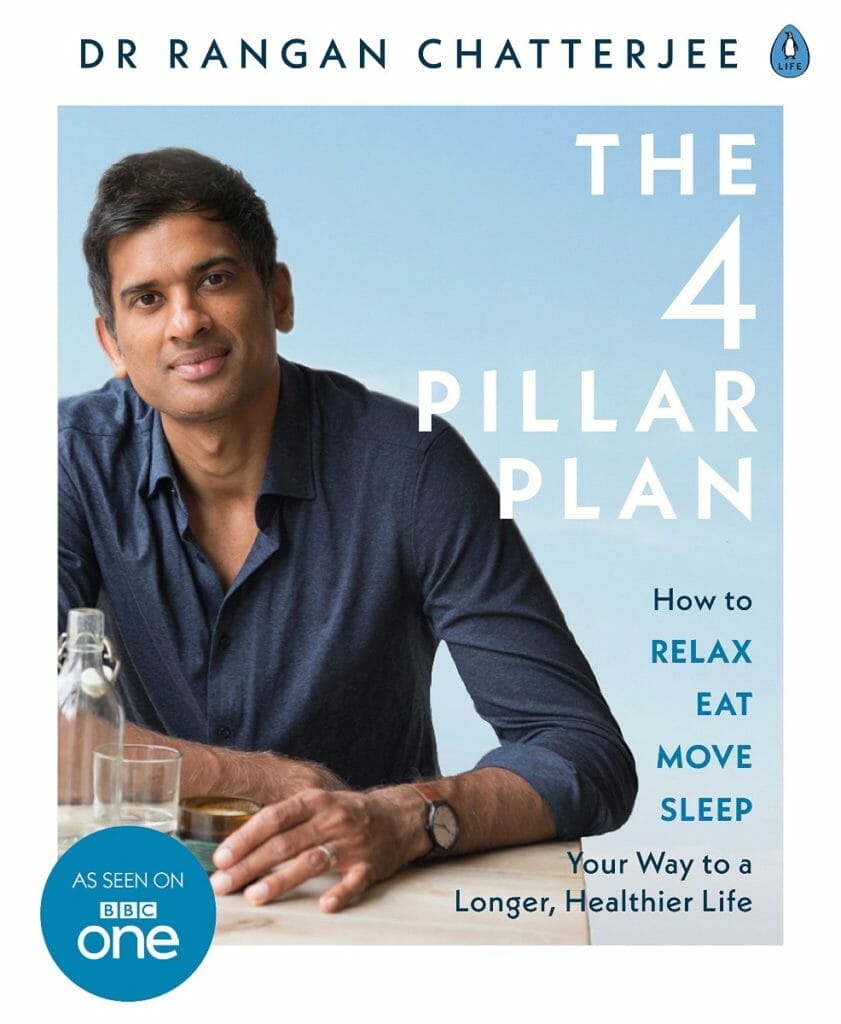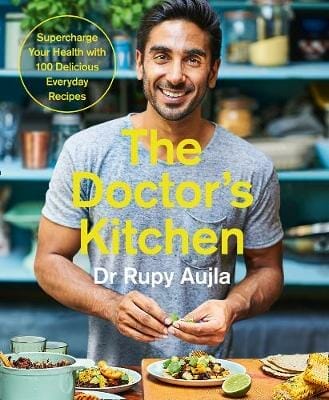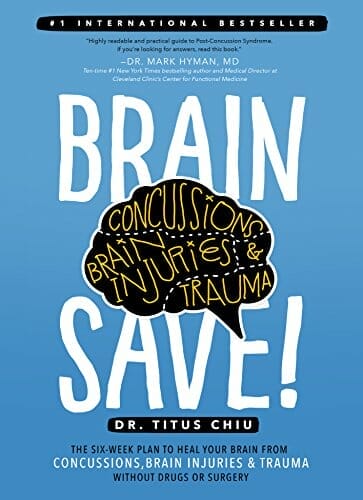Summer is officially here! It’s that time of year when the long, hot and sunny days stretch out ahead of us and there seems like plenty of time to do all the things that we’ve been meaning to do. But does that really happen? More often than not, I find summer days are even busier trying to balance work and holidays, as well as finding the time to keep up to date with the ever-growing mountain of health books that are published.
So help is at hand! As a neuroscientist and nutritional therapist, I’m fascinated by how the brain is influenced by our diet, lifestyles and environment, So, I’ve selected some must-read books that present the latest scientific research with practical programmes in simple and approachable styles to save you the time.
Okay, so these might not be associated with your typical summer poolside blockbuster read but I can assure you, these books are life-changing in how you think and adapt your own health and are invaluable tools as a therapist. So use this time, with plentiful UV light and Vitamin D, to boost your brain health!
The Four Pillar Plan by Dr Rangan Chatterjee

This isn’t just a book but more of a health revolution that has become an instant bestseller. Many stalwarts of the health and food industry, from Jamie Oliver to Amelia Freer, advocate Dr Rangan Chatterjee’s straight forward, compelling and above all non-preachy approach to health distilled into this book.
The Four Pillar Plan is perfect for people wanting to optimise their wellbeing, as well as a tool that nutritional therapists can use to support their client’s efforts to change and adapt their diets and lifestyle, In fact, many health care professionals are now using Rangan’s advice and approach on “Doctor in the House”, his two-series programme that aired on BBC1, as well as The 4 Pillar Plan to encourage people to make all-round improvements in the way they live.
The Four Pillar Plan is broken down into four main elements, or pillars; – RELAX, EAT, MOVE, SLEEP – with five practical but simple and realistic steps to change in each pillar. The idea is to create balance across all of the pillars but is not about creating perfection in each individual one.
There are simple to follow habit changes, helpful hacks, recipes and some information about why the changes are important, such as the connections with between lipopolysaccharides, leaky gut syndrome and chronic inflammatory conditions including obesity, type 2 diabetes and joint pain. There is also a comprehensive reference and bibliography section if you want to explore the research further.
So why should you read this book? Elegant in its simplicity and based
on sound scientific evidence, this book is supported by a website and
podcasts that are accessible to all. The simple language and connections
drawn between lifestyle, diet, the environment and our health makes a
refreshing change – for myself, like other nutritional therapists, we
understand the science but can we put this into simple language for
others to understand? I thoroughly recommend this book for anyone
wanting to know more about how to empower themselves to improve their
health, and for practitioners that want to simplify some of these
concepts into communication strategies to help them and their clients.
Rangan makes a lot of sense and I wait with eagerness for his next book
“The Stress Solution” to be released in December 2018.
https://drchatterjee.com/
Doctors Kitchen – Dr Rupy Aujla

“I’m just a straight-talking NHS doctor lending my unbiased opinion on healthy eating and showing everybody how to get phenomenal ingredients on their plates everyday.” This is a quote from Dr Rupy Aujla in the foreword of his first “culinary medicine” cookbook and it perfectly sums up his no-nonsense but fun and approachable style of cooking. This is the perfect go-to cookbook with over 100 vibrant recipes, including plenty of interesting vegetarian and vegan options, that are easy and inexpensive to make, so there can be no excuses for not trying some of these tasty dishes! There are no culinary boundaries or country border limits to the flavours Rupy packs into every meal, which are all bought to life by great photos and a visual design flare throughout this cookbook.
What makes this cookbook stand out from the rest, and a useful tool
for nutritional therapists, is that each recipe is linked to interesting
and relevant snippets of medical science that aims to improve
understanding as to why certain nutrients are important for specific
areas of health. I really enjoy using this cookbook for my own family
meals and also recommending to clients.
https://thedoctorskitchen.com/
End of Alzheimer’s by Dr Dale Bredesen

This book has been described as “phenomenal” and “monumental” by some of the foremost health experts in the world and when you read it you’ll see why!
Dr Dale Bredesen, a world expert in neurodegenerative diseases, has lead decades of research into Alzheimer’s disease and dementia. Rather than dismissing this devastating, mysterious and traditionally considered unsolvable condition as terminal, he has distilled his knowledge into a plan that not only prevents but also has the potential to reverse Alzheimer’s disease.
As a neuroscientist myself with a clinical decade of research into Alzheimer’s disease under my belt, I was excited to finally be reading some practical and attainable steps to preventing and reversing cognitive decline and dementia. It’s seemingly so obvious that diet, lifestyle and environment are going to play a role in how our brain functions and ages, but all too often this is forgotten in the race to “cure” by medicinal means or even dismiss diseases and conditions as incurable leaving patients to feel that there is nothing that can be done to slow the process or improve/maintain quality of life.
The statistics speak for themselves with Dale’s work – hundreds of people have followed Dale’s ReCODE protocol, the practical plan described in the ‘End of Alzheimer’s’ and all patients with early- to mid-stage cognitive impairment or Alzheimer’s have either shown marked improvement, or become asymptomatic.
On a practical level, the book itself is more of a reading book, without the coloured photos and easy design style of Rangan and Rupy’s books. Maybe more of a poolside read rather than a book to dip in and out of like ‘The Four Pillar Plan’ and ‘Doctors Kitchen’. As a practitioner, it’s a must read. Parts 1 and 2 are packed full of clinical science which links the underlying factors contributing to accelerated brain ageing; Parts 3 and 4 provide the practical ReCODE programme with “Personalized Therapeutics” and “Maximising Success”, which helps the reader (therapist, clinician or carer) put together a plan.
It might seem a slightly weightier read than some of the other books
I’m reviewing in this blog but this is mainly due to its layout and
design. However, if as therapists, we are ever going to make a
difference to brain health, understanding Dale’s simply connective
approach to deconstructing Alzheimer’s disease and cognitive health is
going to make a difference in our client’s lives. This book combined
with Rupy’s cookbook is a powerful clinical combination.
https://www.drbredesen.com/
Brain Save – Dr Titus Chiu

Dr Titus Chiu is a Functional Neurologist who is on a mission to transform the face of healthcare for the 1 billion people around the world struggling with brain and mental disorders – that’s no mean feat!
Dr Chiu blends ancient Eastern wisdom practices with the latest breakthrough in neurology, nutrition and genomic medicine – a philosophy and approach that chimes with my own. Titus explores and explains this further in his book “BrainSAVE! – The 6-week plan to heal your brain from concussions, brain injuries and trauma without drugs or surgery”
You may wonder why I’m recommending a book on such a seemingly specific condition such as concussion; this may not be resonate with specific cases in your own life or that of your clients. However, this book is so much more about labels and helps you to understand the deeper importance of connecting the dots in health and how nutritional neurology can unravel even the most seemingly disparate of conditions. After all, what inspired Titus was his realisation as a neurologist that the years of depression he’d suffered was partly due to a concussion that had occurred as the result of a car accident decades before.
Like Rangan and Rupy, Titus has distilled his knowledge into a simple plan, based on medical and scientific data, specifically looking at how to support and heal neural networks. As a neuroscientist, I find this fascinating. Only a couple of decades ago, we thought of the adult brain as a fully formed organ, unable to create new connections, so once the pathways were “broken” there was nothing much that could be done. Now here we are, in the mere blink of the eye in terms of medical research time, reading about how we can use and manipulate our diet, lifestyle and environment to essentially grow a new brain!
The chapter on Root Cause Neurology unravels some of the mysteries for the reasons for poor brain health, from depression and anxiety, to seizures and ADHD, and the later chapters with the BrainSAVE! Plan gives practical guidelines. This book has self-assessment quizzes to really personalise the BrainSAVE! plan to the reader’s own life and health status. This plan outlines the top five BrainSAVE! supplements, what foods to eat to speed up the healing process and some useful recipes.
This book is laid out in the same style as Dale Bredesen’s ‘The End
of Alzheimer’s’ with complex neurological information laid out in a
simple way for all to understand and a practical plan at the end. No
glossy photos or snappy “Hacks” are included, as outlined in Rangan’s
book, but the take home message is still clear and unequivocal; unravel,
understand and support brain health for healthy ageing and maintaining
quality of life for decades to come.
http://drtituschiu.com/
So, I hope that I’ve inspired you to enjoy some great reads this
summer and as anybody who wants to maintain great brain health knows,
reading and learning is one of the best ways to keep your brain healthy
and young!
Wishing you all a happy and healthy summer.
Elisabeth







